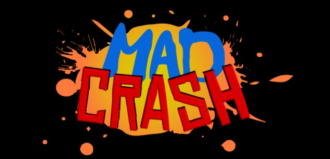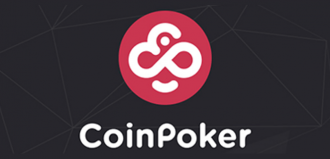The Evolution of Online Poker: From Penny Games to High Stakes
The world of online poker has undergone a remarkable transformation since its inception. What once started as a modest offering of penny games has now become a thriving industry with high-stakes tournaments, professional players, and a global player base. In this article, we'll take a journey through the evolution of online poker, exploring its humble beginnings, the poker boom, the rise of high-stakes games, and the future of this dynamic and ever-changing world.

The Humble Beginnings
The concept of playing poker online began in the late 1990s, but it wasn't until the early 2000s that the first online poker rooms started to gain traction. These were rudimentary platforms offering basic poker games, often played at very low stakes. In many cases, the most significant action one could find was a penny or nickel game.
One of the earliest online poker rooms, Planet Poker, launched in 1998 and paved the way for what was to come. Players would dial up with their modem connections and join tables where the graphics were simple, and the gameplay was slow by today's standards. However, it was the beginning of something big.
The Poker Boom
The poker boom, which began around 2003, saw an explosion of interest in the game, thanks in large part to televised poker events like the World Series of Poker (WSOP) and the hole-card camera that allowed viewers to see players' hands. This period saw a surge in online poker's popularity, and the industry started to evolve rapidly.
Online poker rooms began to offer a more extensive range of games and higher stakes. The once-mundane penny games transformed into micro and low-stakes games, attracting a broader player base. Websites like PokerStars, Full Tilt Poker, and PartyPoker became household names, offering various poker variants and the opportunity to qualify for live tournaments, including the WSOP.
The Rise of Professional Players

As the popularity of online poker grew, so did the number of professional players who made their living from the game. Many of these pros got their start in online poker rooms before transitioning to the live tournament circuit. Online players, like Chris Moneymaker, who famously won the WSOP Main Event in 2003 after qualifying through an online satellite, became poker legends.
The online poker boom created a new generation of professionals who honed their skills in the digital realm. They were adept at multi-tabling, analyzing hand histories, and using various software tools to gain an edge. These players showcased the potential for skill and strategy in online poker.
The High-Stakes Action
As online poker matured, the stakes continued to rise. High-stakes games, where players could buy in for thousands or even tens of thousands of dollars, became commonplace. The allure of big winnings attracted the best players from around the world. The high-stakes action was no longer limited to the live arena; it thrived online.
Platforms like Full Tilt Poker were known for hosting some of the most legendary high-stakes cash games in history. Names like Phil Ivey, Tom Dwan, and Viktor Blom, also known as "Isildur1," became synonymous with high-stakes online poker. The railbird culture emerged, with spectators watching the games unfold and discussing them in online forums.
The Black Friday Scandal
However, the evolution of online poker was not without its challenges. In 2011, a significant setback occurred with the "Black Friday" scandal. The U.S. Department of Justice seized the domains of major online poker sites and indicted their founders on charges of illegal gambling, bank fraud, and money laundering.
This event had a profound impact on the industry, leading to the closure of several online poker rooms for U.S. players. It also eroded trust in the safety and legality of online poker. Many players lost their bankrolls and were left searching for alternative platforms.
The Rebuilding and Regulation
Despite the setback of Black Friday, the online poker industry has rebounded. Sites like PokerStars, which paid back U.S. players, and the emergence of legal and regulated online poker in states like Nevada, New Jersey, and Pennsylvania have helped rebuild trust in the game.
Regulation has played a crucial role in the evolution of online poker. It has provided players with a secure and fair environment to enjoy their favorite game. Regulation has also expanded to other parts of the world, including Europe, where online poker is thriving in countries like the United Kingdom, France, and Spain.
The Future of Online Poker
Looking ahead, the future of online poker appears promising. Technological advancements, such as mobile gaming and virtual reality, have the potential to reshape the online poker experience. Players can access their favorite games from the palm of their hand and immerse themselves in virtual poker rooms, creating a more social and interactive environment.
The convergence of online poker and esports is another exciting development. Esports tournaments have become a popular platform for poker operators to engage a younger and tech-savvy audience. Online poker rooms are increasingly hosting esports-themed events and collaborations, bridging the gap between the two skill-based communities.
The popularity of cryptocurrency, such as Bitcoin, is also making its way into online poker. Cryptocurrency transactions offer security and anonymity, making them an attractive option for online poker players. The integration of blockchain technology has the potential to enhance the transparency and fairness of online poker.
The Role of Regulation in Ensuring Fair Play
One crucial aspect of online poker's evolution is the role of regulation in ensuring fair play. Online poker operators are subject to strict regulatory standards to maintain the integrity of the game. These regulations include:
Random Number Generators (RNGs): Online poker sites use RNGs to ensure that card shuffling and dealing are truly random, replicating the fairness of live games.
Player Funds Protection: Regulations require online poker operators to segregate player funds from operational funds, ensuring that players' deposits are always safe and accessible.
Responsible Gaming Measures: Regulatory bodies promote responsible gaming by implementing self-exclusion programs, deposit limits, and age verification checks to protect players from the harms of excessive gambling.
Anti-Collusion Measures: Online poker rooms employ anti-collusion and anti-cheating mechanisms to detect and prevent any unfair practices among players.
Audit and Certification: Regular audits and certifications by independent bodies ensure that online poker platforms adhere to the highest standards of fairness and security.

FAQs
Q1: Is online poker legal in my country?
A1: The legality of online poker varies by country. It's essential to research your country's laws and regulations regarding online gambling to determine if it's legal.
Q2: How can I trust the fairness of online poker games?
A2: Look for online poker rooms that are licensed and regulated by reputable authorities. These rooms are subject to strict oversight and must adhere to high standards of fairness.
Q3: What is the minimum stake for online poker games?
A3: The minimum stake can vary widely, but many online poker rooms offer micro-stakes games that allow you to start with very low buy-ins.
Q4: Can I play online poker for free?
A4: Yes, many online poker rooms offer free-to-play games, allowing you to practice your skills without risking real money.
Q5: How do I deposit and withdraw funds on online poker sites?
A5: Online poker rooms offer a variety of deposit and withdrawal options, including credit cards, e-wallets, and cryptocurrencies. Choose the method that suits you best.
Q6: Are online poker winnings taxable?
A6: Tax implications for online poker winnings vary by country. Some regions tax gambling winnings, while others do not. Consult with a tax professional to understand your tax obligations.
Q7: What measures can I take to ensure the safety of my online poker funds?
A7: To enhance safety, use strong, unique passwords, enable two-factor authentication, and choose well-established and regulated poker sites. Keeping your software and antivirus up-to-date is also important.
Q8: How do I improve my online poker skills?
A8: Improving your online poker skills requires practice, studying strategy, and analyzing your gameplay. Many resources, including books, videos, and forums, can help you enhance your skills.
Q9: What are the most popular online poker variants?
A9: Texas Hold'em and Omaha are the most popular online poker variants. However, you can also find a variety of other games like Seven Card Stud, Razz, and more.
Q10: Can I play online poker on my mobile device?
A10: Yes, most online poker rooms offer mobile apps or responsive websites, allowing you to play on your smartphone or tablet.
In conclusion, the evolution of online poker has been a fascinating journey from its humble beginnings to the high-stakes world we see today. With regulation, technological innovation, and the promise of exciting opportunities, online poker continues to thrive, welcoming players from around the world. Whether you're a seasoned pro or just starting, the online poker world offers a dynamic and evolving landscape that promises a thrilling gaming experience.
Poker rooms Online

PokerKing Asia
- Rakeback Contact us
- Deposit bonus N/A

ClubGG
- Rakeback Contact us
- Deposit bonus N/A

MadCrash Poker
- Rakeback Contact us
- Deposit bonus N/A

CoinPoker
- Rakeback Contact us
- Deposit bonus N/A

KKpoker
- Rakeback Contact us
- Deposit bonus N/A
Recent blog & news

Poker News Summary in March
News from poker world.

Poker in the Quarantine period
Coronavirus has changed the world as we know it, and it is no different for poker. Unlike most business, however, Poker Rooms are thriving in the quarantine caused by...

Careers at DonkHunter
Donkhunter is a growing affiliate business with almost 6 years of market experience. We offer support to players in various aspects of the poker lifestyle and special...